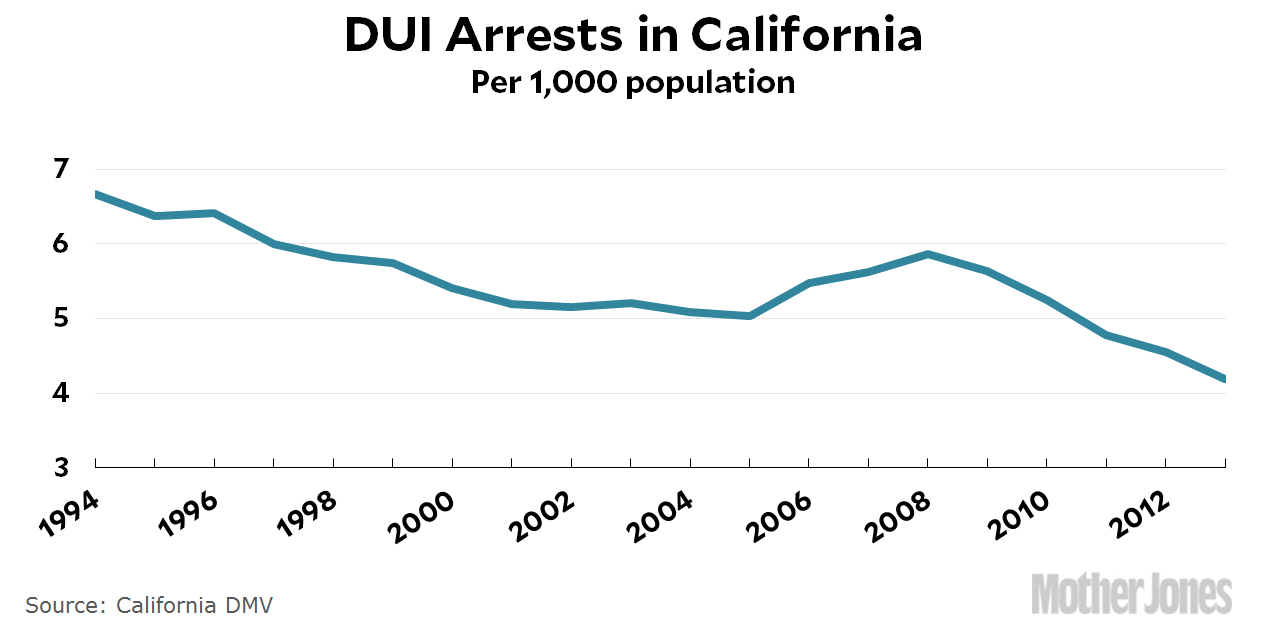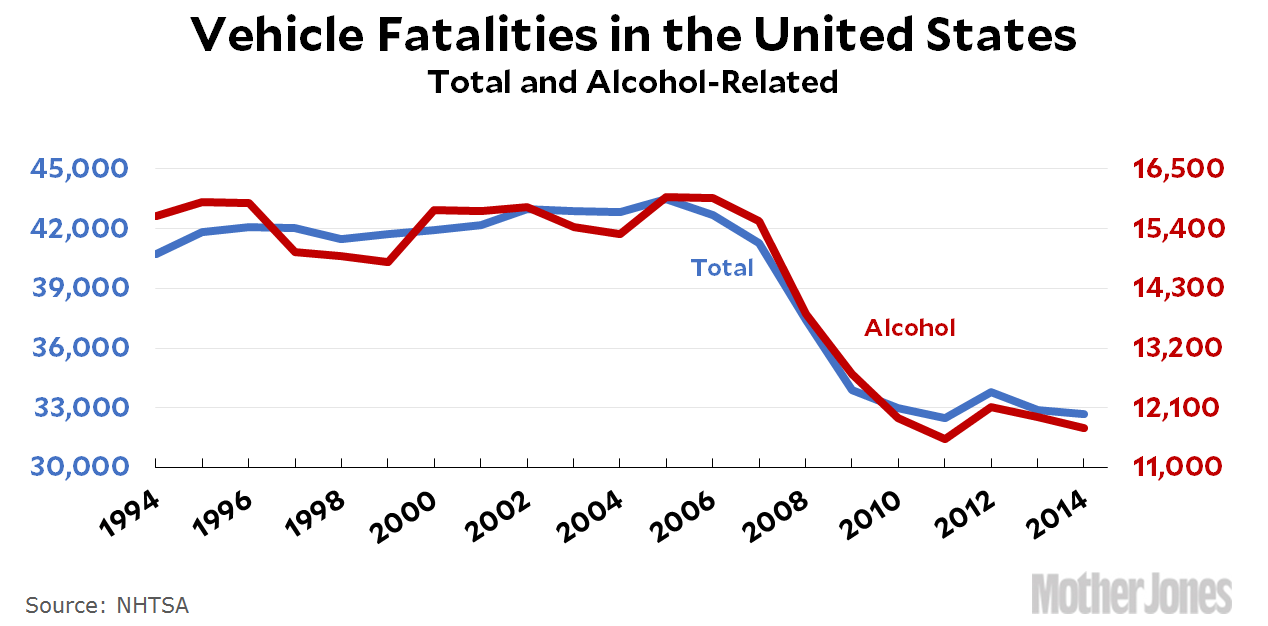Over at NRO, Kevin Williamson takes Chris Hayes to task for implying that we don’t pay enough attention to drunk driving:
The fight against drunk driving is a success story. A big one….In fact, the campaign against drunk driving is one of the great examples of how policy-driven social changes of the sort imagined by progressives such as Chris Hayes can succeed — and it also demonstrates the shortcomings of that model.
….Overall, we’ve cut DUI deaths and injuries by about 50 percent. Well done, us. We did it with invasive and paternalistic laws that lend themselves to occasional abuse and wanton mission creep, punishments that have tended toward the draconian, a campaign of social stigmatization, and heavy expenditures….That’s what real, effective social change looks like: a role for public policy, sure, but also changes in personal behavior, social norms, and economic activity, coupled with trade-offs and progress that is meaningful if modest.
This gives me an excuse to put up some statistics that have puzzled me for a while. Williamson is right that plenty of people credit stricter laws, checkpoints, social stigma and so forth for cutting drunk driving deaths over the past few decades. But does the data actually support this notion? I’m not so sure. For starters, here’s the DUI arrest rate in California over the past 20 years:

I’m sure that nationwide data for this is available somewhere, but I’m not sure where. In any case, I imagine that California is pretty typical, and the data on DUI arrests sure doesn’t suggest that police activity toward drunk driving has gotten a lot more severe over the past couple of decades. Just the opposite, in fact. Of course, this decline in arrest rates is partly because there are just fewer drunk drivers to arrest, thanks to social stigma etc. Right? National data doesn’t really back that up:

Drunk driving fatalities have almost perfectly followed the overall trend toward fewer traffic fatalities as people drove less during the Great Recession. Outside of that period, both overall fatalities and drunk driving fatalities were pretty flat (or down modestly if you account for population growth and total miles driven). Fewer people are killed by drunk drivers these days, but it appears to be for the same reasons—air bags, fewer miles driven, etc.—that fewer overall people are killed on the road.
It’s unquestionably true that drunk driving laws are stricter, social stigma has increased, and punishment is heavier than in the past. But in the past two decades, at least, this really doesn’t seem to have changed things much. Relative to our our overall penchant for killing people on the road, drunk drivers are killing people at about the same rate as always.














